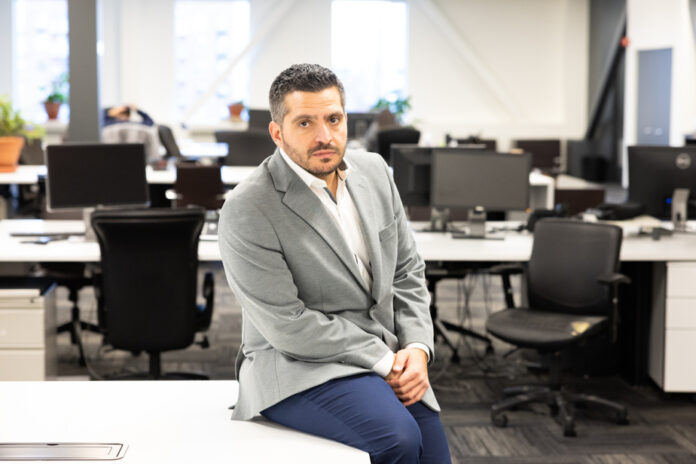(Montreal) A week after announcing “the immediate suspension of the activities of Metro, all [its] newspapers and [its] community websites”, Metro Media President and CEO Andrew Mulé is still hoping for help from last minute to restart the company’s activities.
“It happened so fast. We do not know. We are waiting, we do not know exactly what the next steps are. We take it one day at a time, ”says the businessman in an interview with La Presse Canadienne on Saturday morning.
Faced with a lack of cash, in the midst of its digital shift and as it began its transformation into a cooperative to ensure its survival, the company, which oversaw more than twenty hyperlocal newspapers in Quebec and Montreal, was forced to stop publishing.
About 70 people, including about 30 journalists, have since been unemployed. “We had already reduced from 106 [employees] to 70 to try to survive the income crisis and try to get through it,” Mulé said.
He said on X that he stopped paying himself a salary last March, which he repeated in an interview. “The most important thing was to [support] the editorial mission of the company, because if you don’t have that, you have nothing,” says the entrepreneur.
On Friday, the Journal de Montreal reported that Metro Media founder Michael Raffoul paid himself a $2.57 million dividend in August 2021, months before the company’s financial woes began. Mr. Raffoul bought the newspapers from Transcontinental in 2018 to form Métro Média.
“It was done when there was a lot of money in the industry,” says Mr. Mulé. We had no reason, at that time, to think that we were going to lose 80% of our income. The former shareholder was a distributor of our newspapers, he gave us his services, so it was a way of [paying himself back]. »
Andrew Mulé argues that at that time he was not yet a Metro Media shareholder. “I was not one of the owners, this decision was not mine; I had no [power] over that decision at the time,” he says, adding that the dividend payment took place as part of “a restructuring that required a change of shareholder.”
An article in Le Grenier aux Nouvelles indicates that Mr. Mulé became Chairman and CEO of the company in May 2021. Mr. Raffoul had then become Chairman of the Board of Directors.
Asked if the decision of Mr. Raffoul to repay himself a few months earlier may have discouraged some investors from supporting the company financially afterwards, Mr Mulé admits that “it is an excellent question”.
“Mike [Raffoul] was ready to give [money] back to the company, but in a structured deal, with the intervention of [other investors],” said Mr. Mulé, who over the past few months, has knocked on many doors for funding, including at the Ministry of Culture and Communications, Investissement Québec, SODEC and the Ministry of the Economy.
“We didn’t even have [a defender] working for us inside the City itself,” laments Mr. Mulé, who at the end of 2021 chaired an advisory committee on local newspapers set up by the municipal administration.
On Friday, the Liberal Party of Quebec called for emergency government aid to save the press group, as it had done in 2019 to avoid the bankruptcy of the Groupe Capitales Médias newspapers.
Opposition culture and communications critic Michelle Setlakwe believes that $1 million would be “a sufficient sum to allow Métro Média to complete its digital transition which is already well underway”.
Andrew Mulé still wants his call for help to be heard. “We’ve really taken a major digital shift. We really invested in this future, because we believed in it. But we were still on the ground floor. If we had been given some funding, we would have gone up one floor at a time,” he says.
For the years 2020-2021 and 2021-2022, the Ministère de la Culture et des Communications has awarded grants of $393,575 and $348,845 to Métro Média under its Program d’aide à l’adaptation numérique des entreprises of written news, La Presse Canadienne has learned. In 2022-2023, the company touched 394,821 under the same program; for 2023-2024, the planned amount was $313,276.















